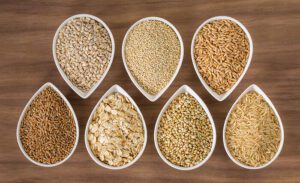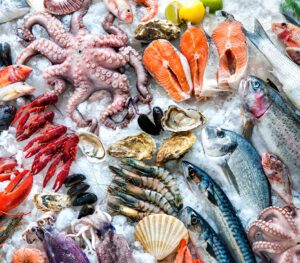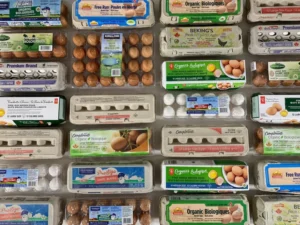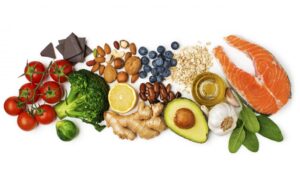Introduction to Sustainable Ingredients
Hey there! Are you passionate about protecting the environment and interested in making better choices for your health? Well, you’ve come to the right place! Sustainable ingredients and the benefits of using them in your daily life. Let’s dive in!
Importance of Sustainable Ingredients
Nowadays, there’s a growing awareness of our food choices impact on the environment and our health. Choosing sustainable ingredients means opting for those produced in an environmentally friendly, ethical, and socially responsible manner. Incorporating these ingredients into our diets benefits our health and supports a more sustainable food system.
Types of Sustainable Ingredients
When it comes to sustainable ingredients, there are various options to choose from. Let’s explore some of the most common types:
Plant-Based Ingredients

Plant-based ingredients are generally more sustainable than animal-derived ones, as they require fewer resources to produce and have a lower environmental impact. Here are a few popular plant-based ingredients:
Legumes

Beans, lentils, and peas are nutrient-dense, versatile, and sustainable. They require less water and fertilizer to grow and can even help improve soil health by fixing nitrogen.
Whole Grains

Whole grains like brown rice, quinoa, and barley are good for your health and have a lower environmental impact than refined grains. They provide essential nutrients and fibre, keeping you full and satisfied.
Nuts and Seeds

Nuts and seeds, such as almonds, walnuts, chia seeds, and flaxseeds, are packed with healthy fats, protein, and essential nutrients. They can be grown with fewer resources and contribute to a more sustainable food system.
Eco-Friendly Animal Products

While plant-based ingredients are generally more sustainable, you can still include animal-derived products in your diet if you choose eco-friendly options:
Sustainable Seafood

Opt for sustainably sourced seafood, like wild-caught or responsibly farmed fish. Look for certifications like the Marine Stewardship Council (MSC) and Aquaculture Stewardship Council (ASC) labels to ensure you make an environmentally friendly choice.
Free-Range and Organic Eggs

Choose eggs from free-range, organic hens raised without antibiotics or hormones. These practices promote animal welfare and reduce the environmental impact of egg production.
Grass-Fed and Organic Meat

When selecting meat, choose grass-fed, organic, and humanely raised options. These practices support animal welfare, have a lower environmental footprint, and provide better-quality meat with higher nutritional value.
Benefits of Using Sustainable Ingredients
Incorporating sustainable ingredients into your diet offers numerous benefits, including:
Health Benefits

Sustainable ingredients are often more nutrient-dense and less processed, which can lead to improved health outcomes. For example, whole grains provide more fibre and essential nutrients than refined grains, while grass-fed meat contains higher omega-3 fatty acids and antioxidants.
Environmental Benefits

Choosing sustainable ingredients helps reduce the environmental impact of food production. By opting for plant-based ingredients, sustainable seafood, and eco-friendly animal products, you support a food system that uses fewer resources, generates less pollution, and contributes to healthier ecosystems.
Social Benefits

Supporting sustainable ingredients also promotes fair labour practices and helps local economies. When you choose fair trade and locally sourced products, you support the livelihoods of farmers and workers, ensuring they receive fair wages and work in safe conditions.
Tips for Choosing Sustainable Ingredients
Ready to start incorporating sustainable ingredients into your diet? Here are some tips to help you make the switch:
- Prioritize plant-based ingredients and make them the stars of your meals.
- Look for eco-friendly animal products, like sustainable seafood, free-range eggs, and grass-fed meat.
- Choose organic and locally sourced products whenever possible.
- Read labels and certifications to ensure you purchase products that meet sustainability standards.
- Experiment with new ingredients and recipes to keep your meals interesting and flavorful.
Conclusion
Incorporating sustainable ingredients into your diet is an excellent way to support the environment, improve your health, and promote social responsibility. By choosing plant-based options, eco-friendly animal products, and supporting local and organic producers, you can positively impact the world around you.
FAQs
- What are some easy ways to include more sustainable ingredients in my diet?
- Add more plant-based ingredients like legumes, whole grains, nuts, and seeds to your meals. Choose eco-friendly animal products like sustainable seafood, free-range eggs, and grass-fed meat.
- How can I find sustainable ingredients in my local grocery store?
- Look for labels and certifications like USDA Organic, MSC, ASC, and Fair Trade. These can help you identify products that meet sustainability standards. Also, consider shopping at farmers’ markets and local food co-ops to find locally sourced, sustainable ingredients.
- Are sustainable ingredients more expensive?
- Some sustainable ingredients may be slightly more expensive, but the long-term benefits to your health, the environment, and local economies often outweigh the cost. Plus, many plant-based ingredients like legumes and whole grains are affordable and budget-friendly.
- How can I encourage others to use sustainable ingredients?
- Share your passion for sustainable ingredients by talking to friends and family about the benefits, cooking delicious meals with sustainable ingredients, and supporting businesses prioritising sustainability.
- Can I still enjoy my favourite foods while using sustainable ingredients?
- Absolutely! With creativity and some ingredient swaps, you can still enjoy your favourite dishes while making them more sustainable. For example, use plant-based proteins or sustainable seafood instead of conventional meats.
